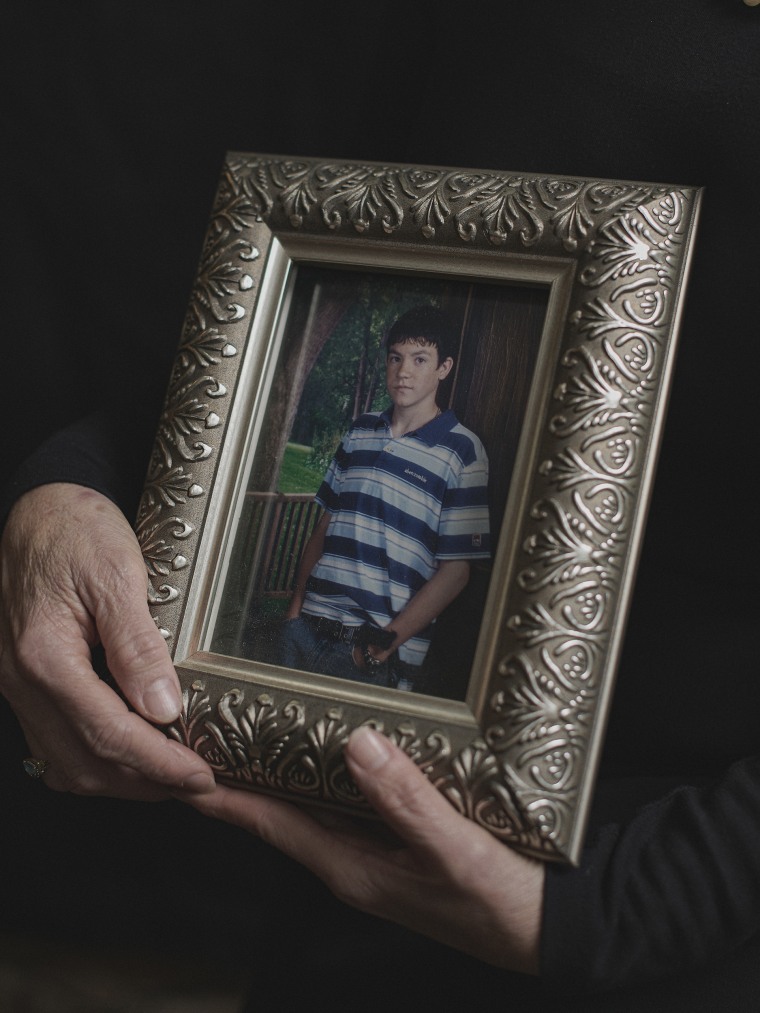This article is Part 5 of “Lost Rites,” a series on America’s failed death notification system.
In Louisiana, parents spent eight months searching for their 34-year-old son, only to discover this summer that his body had been identified soon after his disappearance and cremated without their permission.
Siblings in Michigan filed a missing person report when they couldn’t reach their 59-year-old brother, but they say nobody contacted them after police found him dead from an overdose. His body sat in a county morgue for 514 days, decomposing to the point of being unrecognizable.
After a man in California died from complications of Covid-19 and drug use, it took a coroner in California more than three months to notify his family. The coroner investigator’s explanation, the man’s brother says: “We dropped the ball.”
Death investigation experts say these mistakes are preventable. Coroners and medical examiners, they say, should adopt detailed written protocols for identifying and contacting next of kin. And when exhaustive efforts to find families fall short, experts say officials should post the names of the unclaimed dead to a government database where families can search for loved ones.
But some coroners and medical examiners have no written next-of-kin notification policies, and the vast majority do not post the names of unclaimed dead to the federal database, an NBC News investigation has found.
The combined effect of these shortcomings: Each year across America, untold numbers of families are needlessly left in the dark after a loved one dies. In some cases, anguished family members spend months or years actively searching in vain for loved ones who’ve already been buried or cremated.
“The tools exist to solve many or even most of these cases,” said Erin Kimmerle, a forensic anthropologist at the University of South Florida. “It’s a matter of having the will to do it.”
Tens of thousands of bodies go unclaimed nationally every year, experts estimate, either because families cannot afford burials, the dead have no living relatives or because officials have failed to identify or reach next of kin. In many cases, the unclaimed dead were homeless or suffered from relationship-shattering addictions, making it difficult for officials to locate families — a challenge that has only grown in an era of widespread opioid addiction, surging homelessness and increasingly fractured families.
But in other instances, authorities simply fail to take basic measures to reach family members.
Officials in Jackson, Mississippi, have come under fire this year for a string of cases, revealed by NBC News, in which the Hinds County coroner buried people in a pauper’s cemetery without notifying their families.
Bettersten Wade spent months searching for her 37-year-old son, Dexter Wade, only to learn this summer that he’d been struck and killed by a police cruiser less than an hour after he left home and later buried without her knowledge at a county penal farm.
Marrio Moore, 40, was beaten to death in Jackson in February and buried in a pauper’s grave on the same day as Dexter Wade. Moore’s family learned of his death eight months after he was killed, when they saw his name on a local news website.
For the mother of 39-year-old Jonathan Hankins, who’d spent more than 18 months searching for him, news of his death and burial in Hinds County was delivered by an NBC News reporter this month after the news outlet obtained a list of unclaimed bodies buried in the pauper’s cemetery and cross-checked the names with a database of missing persons.
These problems span the country. NBC News identified cases in a dozen states — from small towns to major cities — in which families waited months or even years to learn about the death of a loved one.
There’s a free federal program — the National Missing and Unidentified Persons System, or NamUs — that can help alert families when a loved one’s body has gone unclaimed. Unlike other federal databases, such as the National Crime Information Center, which is accessible only to law enforcement, anyone can view postings of missing and unclaimed people on NamUs, and each listing is searchable on Google.
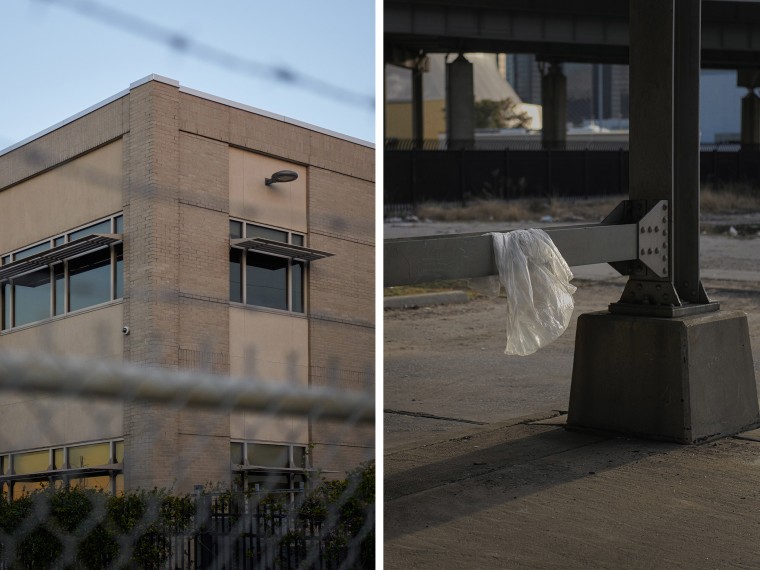
The system has proven effective. According to data provided by NamUs, of the roughly 20,000 unclaimed person reports added to the system over the past decade, about 3,800 were later archived — indicating that in nearly 1 in 5 cases someone came forward to claim the remains.
The implication is clear, experts said: The simple act of posting the names of the unclaimed dead has the potential to deliver answers to thousands of families nationwide every year.
But in huge swaths of the country — including Mississippi — these names aren’t shared publicly.
“It’s very sad that a lot of other medical examiner offices aren’t using it,” said Michelle Clark, a death investigator in Connecticut’s Office of the Chief Medical Examiner, which has a policy of listing every unclaimed body in NamUs. “Even if we don’t find family here in Connecticut, we all have family from out of state. So sometimes someone from out of state will notice, ‘Oh, my gosh, that’s my cousin who’s passed away.’”
Posting to the database of unclaimed bodies is voluntary. Although at least 16 states have adopted laws requiring police and coroners to list cases of missing persons and unidentified bodies in NamUs, none explicitly require the posting of unclaimed persons who have been identified, according to an NBC News review of state laws.
In 90% of counties nationally — including a majority of those with populations above 200,000 — not a single active unclaimed person case was listed in NamUs over the past five years, according to an NBC News analysis of federal data.
In a few places, including Oregon and the suburbs of Philadelphia, local journalists have attempted to fill in these gaps by obtaining the names of the unclaimed dead held by local coroners and publishing their own searchable databases — leading dozens of families to come forward to claim the remains of estranged loved ones.
In Rhode Island, which has zero cases listed in NamUs, it took 46 days for the family of 57-year-old William Swanton to learn he died and was buried in a city cemetery last year — even though Swanton’s public housing manager, local police and the county medical examiner all had access to family members’ names and contact information.
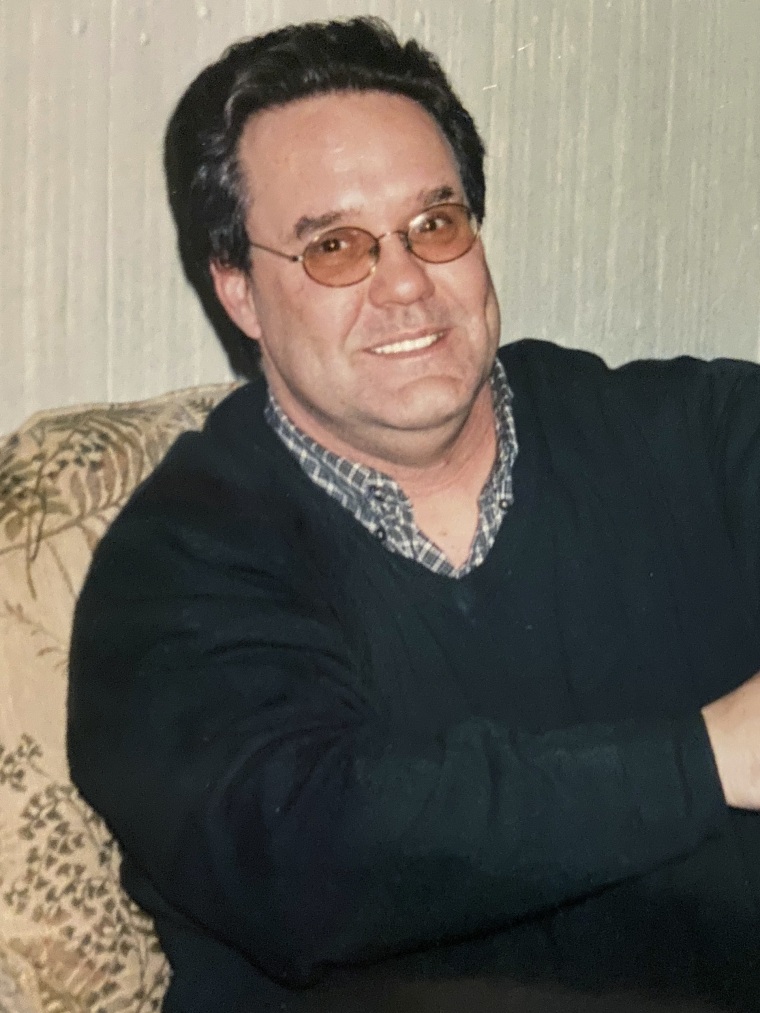
Afterward, the medical examiner’s office said the responsibility for contacting next of kin belonged to law enforcement. A police official, however, said the department had “nothing in policy” about finding and notifying families.
“Every step that it could go wrong, it did go wrong,” said Catherine Swanton, William Swanton’s ex-wife and the mother of his two daughters.
Such miscommunications and finger-pointing between police and coroners are disturbingly common in death notifications and are another reason posting the names of unclaimed persons to NamUs is an important backstop, said Kimmerle, the University of South Florida anthropologist.
“One group assumes the other is doing everything,” she said, “and then no one’s really doing anything.”
'We would have found him'
On May 12, Sherry Pfantz was in her car, driving home from work in southwestern Louisiana, when she decided to once again call the Orleans Parish Coroner’s Office in New Orleans to ask if they had her son.
She knew these calls — which had become a grim part of her weekly routine — were a shot in the dark. But she had to try.
Benjamin Pfantz, 34, had walked away from a drug rehab facility near New Orleans more than eight months earlier. Even when he was using, he’d never gone more than two weeks without calling. Fearing the worst, she and her husband had started calling area morgues.
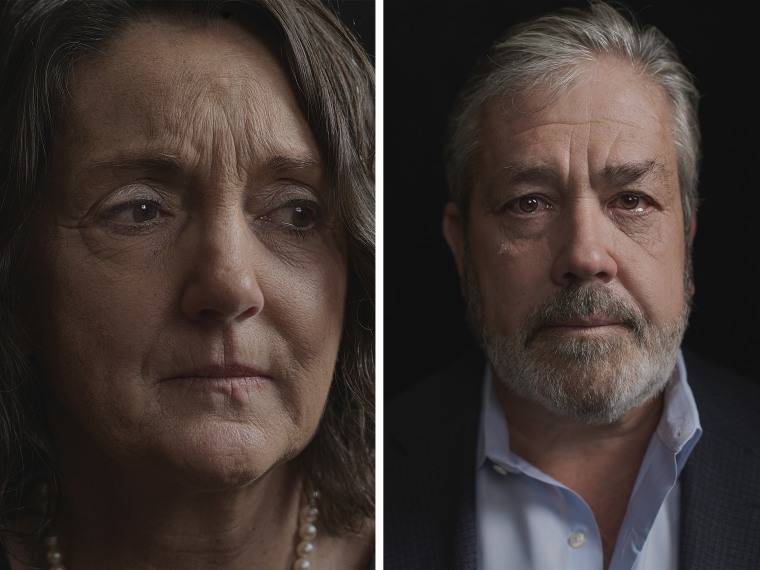
With each call came a rush of relief. Her son wasn’t there and might still be alive. But that afternoon, after Pfantz again spelled out his name and provided his date of birth, she recalled, the voice on the other end gave a different response: “We have him.”
The tears came so fast and so fierce, Pfantz had to pull off to the side of the road to avoid crashing. Through her sobs, she said she heard the coroner’s office worker give two details that she thought couldn’t possibly be true.
First, the woman said that the coroner had received and identified her son’s body back in September, only a few weeks after he’d gone missing and days after New Orleans police found him unresponsive from an overdose beneath an overpass. And second, there would be no need to call a funeral home; the woman said the coroner had cremated her son’s body months earlier.
“We never would have had him cremated,” Pfantz said later. “They took that choice away from us.”
She and her husband, Theron Pfantz, couldn’t fathom how this had happened. They’d done everything in their power to find their son. They’d filed missing person reports with multiple jurisdictions in Louisiana, including in Beauregard Parish, where they live. They’d made the four-hour drive to New Orleans to search homeless encampments and put up posters with Benjamin’s photo and their contact information. For months, they cold-called hospitals and jails and coroner’s offices, hoping for a lead.

Sherry Pfantz says she adopted the same mentality in searching for her son as she’d taken during his years of addiction: “I told him I was never going to give up on him. And we never did.”
The months of not knowing took a toll on their health. Pfantz, an educator, said she usually kept it together during the school day. But as soon as she walked out the door — day after day, for months — the tears would start flowing again.
Calling the coroner and others on her drive home gave her purpose and distracted from the pain. Now she wonders: If she hadn’t kept calling, would she and her husband have ever learned of their son’s death?
An investigator from the Orleans Parish Coroner’s Office later told the Pfantz family the agency didn’t tell them about their son’s death because of a clerical error; Benjamin’s last name, he said, according to the family, was misspelled in the coroner’s computer system.
The couple wasn’t satisfied with that response. They say any reasonable person would have realized that Benjamin L. Pfantz and the misspelled “Benjamin L. Peantz” — both with the same birthday — were the same person. And why had the coroner said yes in May after repeatedly saying no the previous eight months?
In August, they filed a lawsuit against Orleans Parish Coroner Dwight McKenna, alleging that the pain of losing their son was compounded by his office’s “gross negligence.”
“The coroner had everything they needed to find us,” Theron Pfantz said. “They just didn’t do it.”
McKenna’s office did not respond to interview requests or written questions from NBC News. In a court filing, the coroner’s office denied negligence in the Pfantz case.
When a member of the New Orleans City Council asked McKenna about the case at a meeting in August, McKenna said his team works diligently to identify bodies and notify families in a timely manner.
“I know everybody wants us to be able to identify their loved ones lickety-split,” McKenna said, snapping his fingers in the air. “It’s not going to happen.”
While declining to speak in detail about the Pfantz case, McKenna told members of the City Council that sometimes his office simply has “bad information.”
“But in the end, we want to get it right, and as far as I know, we get it right, maybe not as quickly as we would like,” McKenna said. “I would like to offer my condolences to anybody’s family … where we didn’t get it right quick enough.”
In response to a request for information by the Pfantz family’s lawyer, an attorney representing the Orleans Parish coroner wrote that the office has no written policies or procedures for identifying bodies or notifying next of kin, according to documents reviewed by NBC News. And the coroner, like every other coroner’s office in Louisiana, does not post the names of unclaimed people to NamUs, according to an analysis of federal data.
The coroner also refused in response to a records request by NBC News to release the names of unclaimed people buried or cremated by Orleans Parish since 2020, saying there was no way to produce such a list with the agency’s data management system and that it “would require extensive, overly burdensome segregation of non-public records.” This, experts say, makes it impossible for the public to learn whether anyone else with an active missing person case might be listed among the unclaimed dead in New Orleans.
Richard Trahant, the Pfantz family’s lawyer, is representing two other families who say the Orleans Parish coroner also failed to notify them this year after a loved one died. The cases, he said, along with the coroner’s failure to adopt a policy for locating next of kin, reveals a stunning level of disregard for grieving families.
“Irrespective of religious beliefs, the way that you handle the dead is sacrosanct to everybody,” Trahant said. “People spend years trying to track down and bring home the bodies of missing loved ones, and these people are handling it like it’s a used burrito wrapper.”
Throughout their months of searching, Sherry and Theron Pfantz said nobody mentioned NamUs to them.
But they are confident that if the Orleans Parish coroner had posted Benjamin’s name to the system — even with the spelling error — they would have brought him home months earlier.
“If his name was on that site, we would have found him,” Theron Pfantz said of NamUs. “Because we never stopped looking.”
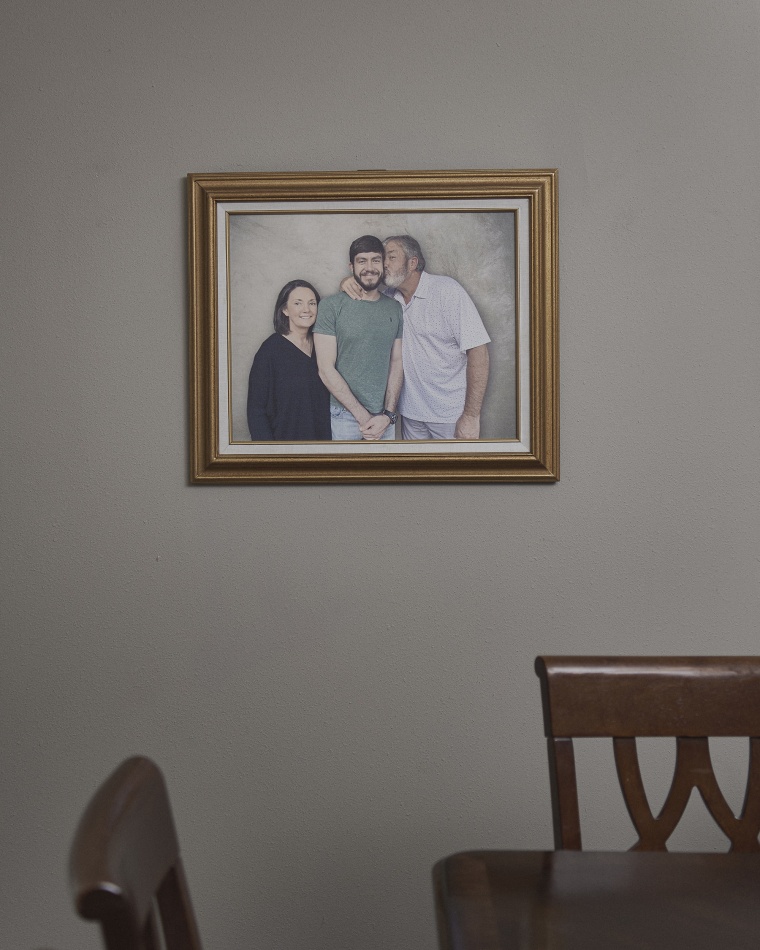
Coroners slow to adopt
For the first decade after it was created in 2007 by the National Institute of Justice, the NamUs database consisted of only two datasets: missing persons and unidentified bodies. The goal was to create a public-facing system that would allow authorities and families to connect the dots between missing person investigations and cases in which coroners were unable to identify a body. But officials at the National Institute of Justice eventually realized they were missing a major piece of the puzzle needed to solve many of these cases.
In tens of thousands of cases each year, coroners and medical examiners were successfully identifying bodies but failing to find their family members. A small number of coroners had begun posting the names of these unclaimed persons to the NamUs database reserved for unidentified bodies as early as 2009. To encourage more jurisdictions to list these cases, NamUs launched the third dataset designated specifically for unclaimed bodies that have been identified about five years ago, said Chuck Heurich, a senior physical scientist at the National Institute of Justice and program manager for NamUs.
In the years since, Heurich said, his team has traveled the country, speaking at state coroners associations and national medical examiners conferences to raise awareness about the free system. Although the database of unclaimed bodies has proven effective, Heurich acknowledged that without a nationwide mandate or the implementation of unified best practices among coroners, adoption has been slow.
“It amazes me all the time when we ask the first question at every presentation — ‘Who has heard of NamUs?’ — and when so few hands go up year after year, you scratch your head, and you’re like, ‘Well, what’s going on?’” Heurich said. “Because I really believe we’re doing a really good job of outreach and training.”
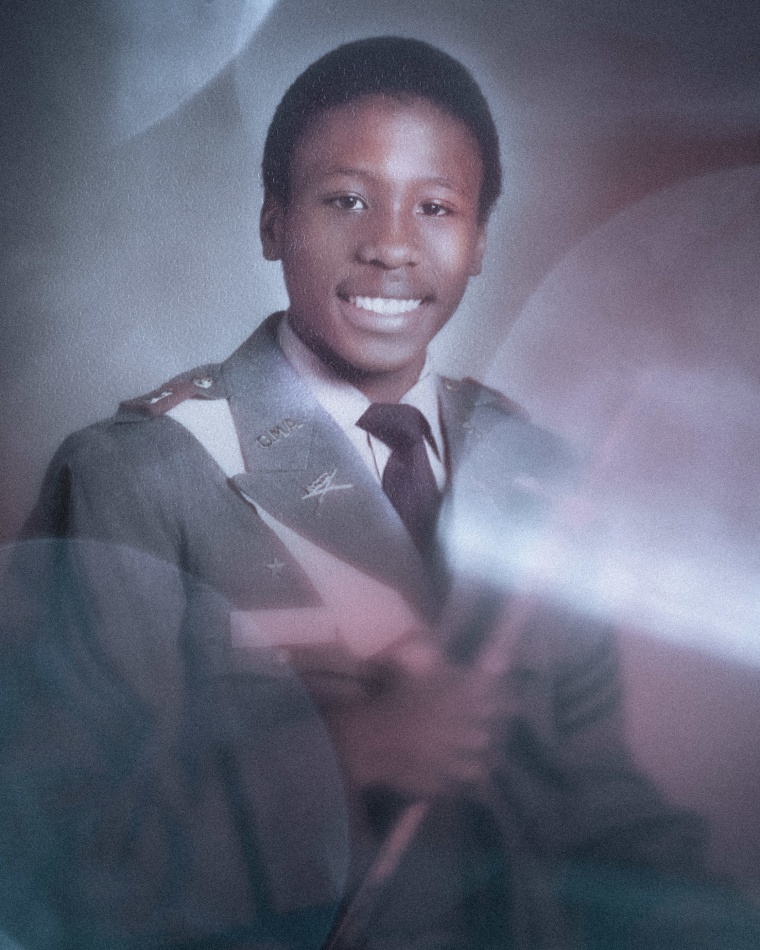
Despite the widespread failure to use the program, the power of NamUs to deliver answers to worried family members is spelled out in numerous case examples, Heurich said.
In one such instance from last year, the family of Leford “LJ” Williams grew alarmed after two weeks passed with no word from him. Williams, 55, who lived in New York City, struggled with drug addiction but always kept in regular touch with his three siblings.
They visited hospitals, rehab centers and police precincts. They searched parks and scoured his old haunts.

But it wasn’t until one of his nieces looked up Williams in the NamUs database in late April 2022 that they learned the truth: He had died 53 days earlier.
“Oh, my God,” his sister Geneva Gee remembers saying after her daughter showed her the listing and photo of Williams’ body on the website.
Williams had fatally overdosed inside a Starbucks bathroom in the East Village on March 1. Even though he had his license on him listing his family’s address, Gee said none of his relatives were contacted by city officials or the hospital where he was declared dead.
“The inhumanity of it is beyond words,” Gee said.
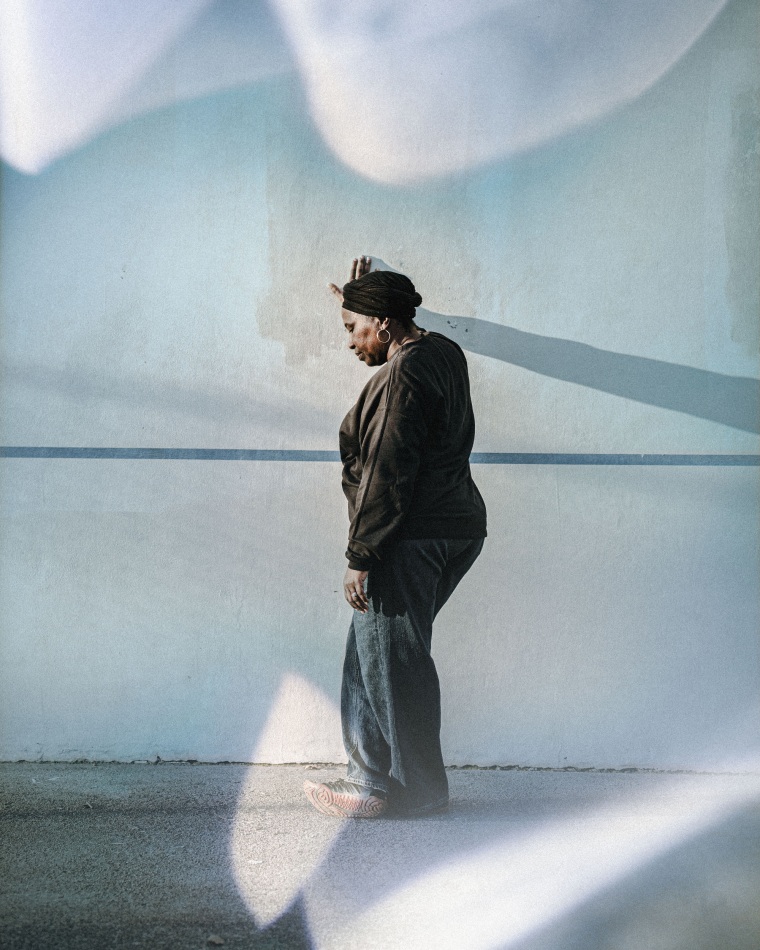
Williams’ family is now suing the city and the hospital that handled his case, alleging that they broke the law by stripping them, as his next of kin, of the right to “immediate possession” of his body.
The city and the hospital, Mount Sinai Beth Israel, denied the allegations in court filings. The hospital declined to comment. New York City’s Office of Chief Medical Examiner said in a statement that it had “followed protocols in this case including multiple attempts to contact next of kin.”
The office is by far the most prolific user of the NamUs unclaimed persons database, with nearly 6,000 active cases in the system — accounting for more than a third of entries.
Despite what she sees as blatant failures to proactively notify family about her brother’s death, Gee said she was grateful she had the ability to find him in the end.
“Thank god for NamUs.gov,” she said. “It should be mandatory.”
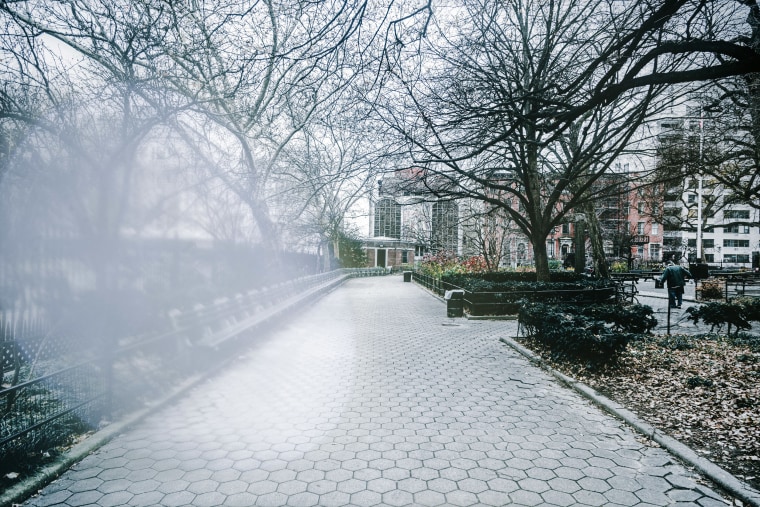
'I want everybody's help'
Bill Yates, the chief deputy coroner in Jefferson County, Alabama, said that without state or federal mandates, it’s up to individual coroner’s offices to decide how much effort to put into finding the families of unclaimed persons.
His office in Birmingham follows an exhaustive process to track down next of kin after someone dies, he said, searching state driver’s license records, police reports and medical records to find emergency contact information. Yates said he also scours ancestry websites to re-create the dead person’s family tree and uses paid people-finder services to track down phone numbers and addresses. And when they still can’t find family, Yates and his team post the names of the unclaimed to NamUs and share them with local media.
“When I post on NamUs, I am saying the Jefferson County Coroner’s Office has failed, and I need your help,” Yates said. “That’s the mentality of this office. No, I don’t want to hide these names. I want everybody’s help.”
Out of 180 names his office has posted to NamUs and shared with reporters in recent years, Yates said 18 have had family members come forward. He and his staff do this, he said, because he believes coroners have a moral responsibility to bring closure to families and avoid adding to their suffering.
“Usually, if somebody is involved with our office, it’s an unexpected death, and it usually has to do with trauma, or maybe some sort of overdose,” Yates said. “We want to do whatever we can to lessen that burden for the family.”
There’s nothing stopping other coroners from adopting this mentality, Yates said.
Yet, in case after case, families spend months or years searching for loved ones who are already dead and identified.
On the day after Christmas last year, Malong Pendar received a call from an unfamiliar number. It was an investigator with the Office of the Medical Examiner-Coroner in Santa Clara, California, with devastating news. His youngest brother, Njawa, was dead.
Pendar’s shock turned to disbelief and then rage when the employee told him that Njawa had died 108 days earlier.
“Why was he left in the coroner’s office for three and a half months to just rot?” Pendar said in an interview.
When he later asked another investigator in the medical examiner’s office why it took so long to notify the family, Pendar said, he received a muted apology. “We’re sorry,” the man said, according to a lawsuit filed by Pendar’s family against the Santa Clara County Medical Examiner-Coroner’s Office. “Somewhere along the line we dropped the ball.”
Njawa Pendar, 45, died of a drug overdose complicated by Covid-19, according to the medical examiner’s office.
He had been struggling with substance use since the death of his father and had isolated himself from his family.
A Google search would have turned up the names of several relatives, Malong Pendar said.
By the time Njawa’s family finally received his body, it was so badly decomposed they could not embalm him and hold a public viewing. He ultimately had to be cremated, his brothers said, instead of buried as they would have preferred.
“We’ve tried to swallow the pill,” Malong Pendar said, “but it’s been horrific.”
A spokesperson for the Santa Clara County Medical Examiner-Coroner’s Office declined to comment, citing the pending litigation.
The county agency, like most of California’s coroner’s offices, does not post the names of unclaimed dead to NamUs.
